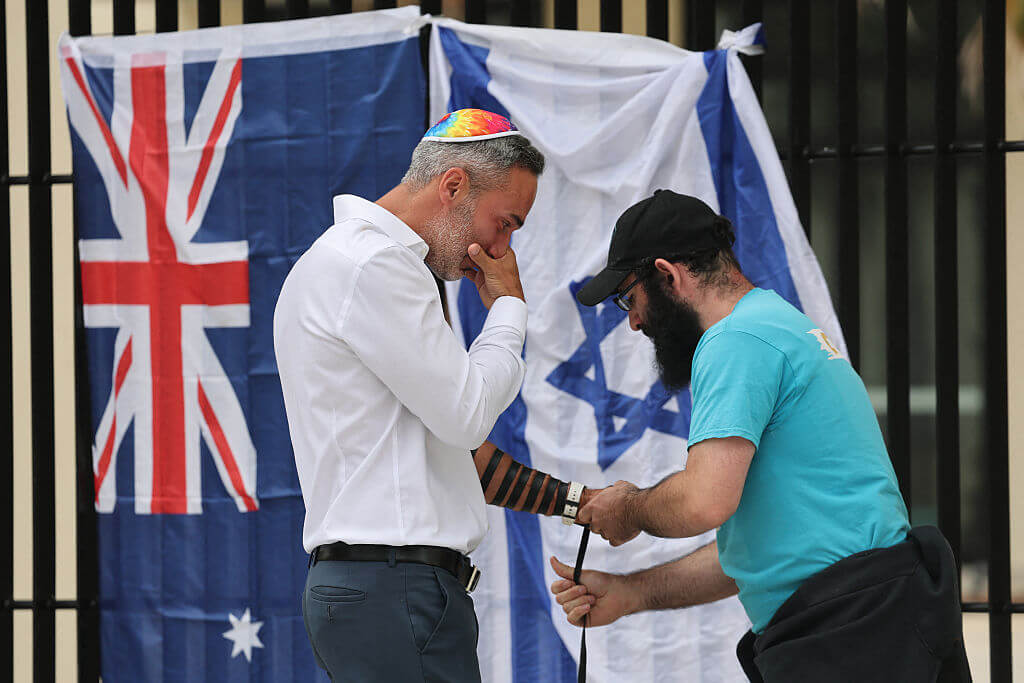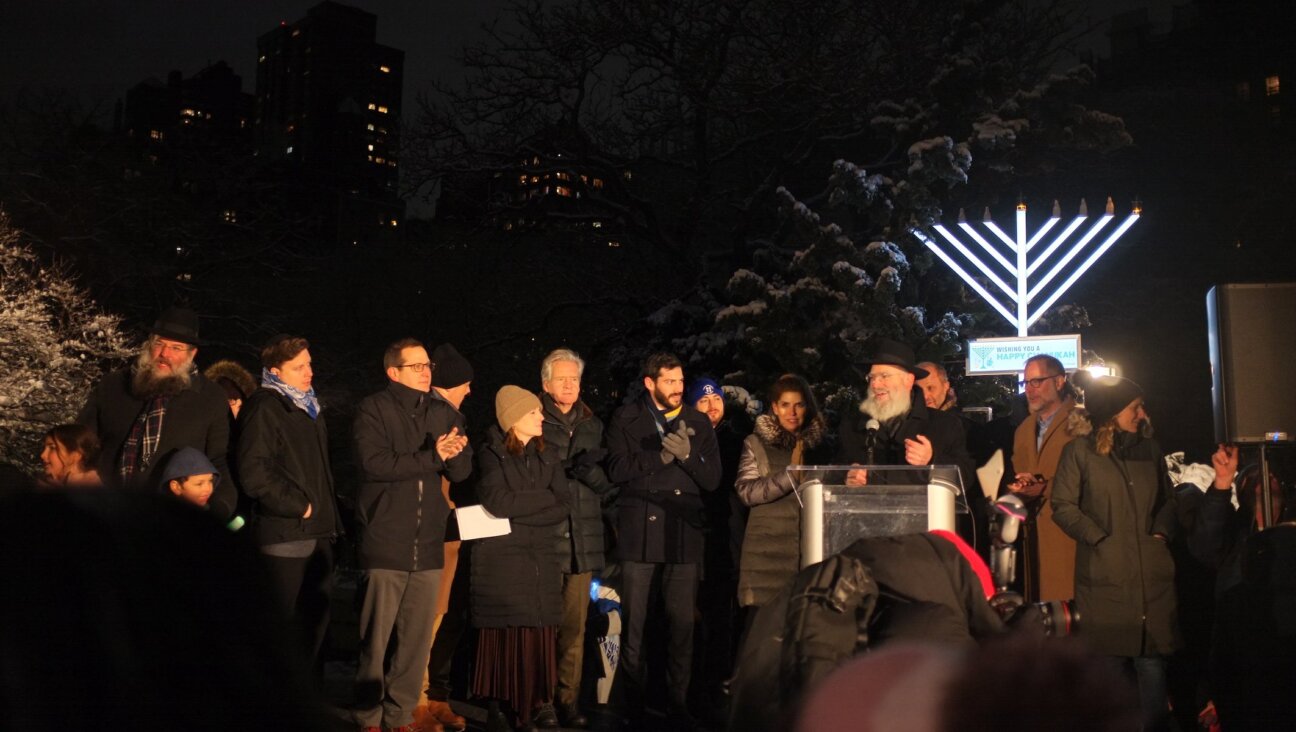Jewish Groups’ Silence Is Deafening After John Kerry’s Plea for Peace

Snubbed? John Kerry passionately urged American Jewish leaders to push Israel to get back to the negotiating table. Their silence has spoken volumes. Image by getty images
Despite almost uniformly claiming to back a two-state solution to the Israel-Palestinian conflict, most major American Jewish organizations have declined to rally behind Secretary of State John Kerry’s recent call on them to speak with Israeli decision makers on the urgency of renewing negotiations with the Palestinians
In interviews with the Forward, some American Jewish leaders say they have stayed quiet because they feel that the onus is on the Palestinians to push for peace. Others told the Forward that they resented Kerry for asking them to pressure Israelis to come to the table.
“It’s inappropriate for an American official to try to engage and recruit American citizens, just because they happen to be Jewish, to put pressure on an Israeli government to do one thing or another,” said Abraham Foxman, president of the Anti-Defamation League. “It’s just wrong.”
Kerry’s appeal to the Jewish leaders, in a June 6 address to the American Jewish Committee, came weeks after his last of a handful of official visits to the Middle East on behalf of a renewed administration effort to re-start peace talks. Those talks came to a halt in 2010, amid Palestinian demands that Israel cease expanding exclusively Jewish settlements in the occupied West Bank and Israel’s insistence on continuing to build them.
Though Israelis refrained from announcing new major settlement construction projects in the West Bank settlements during Kerry’s recent Middle foray, the government continued to allow ongoing construction, and approved plans for nearly 300 new homes in one West Bank settlement. Kerry’s effort appeared to be stalling by the time of the American Jewish Committee speech.
Though the phrasing of his request to the AJC audience was indirect, Kerry’s meaning was clear: the Secretary of State was asking his audience to use their influence on the Israelis who would be deciding whether or not to cooperate with his peace push.
“Let your leaders and your neighbors alike know that you understand this will be a tough process with tough decisions, but that you’re ready to back the leaders who make them,” Kerry said.
Kerry has made clear that his patience is limited, claiming that there is a hard two-year window before a two-state settlement becomes impossible.
Nearly all of the mainstream American Jewish organizations claim to support a two-state solution to the conflict. But in the days following his address, only the Union for Reform Judaism, the dovish lobby J Street and a small handful of others issued statements affirming Kerry’s call.
The Union for Reform Judaism’s statement came the day of Kerry’s speech, praising Kerry and asking Netanyahu and Abbas to restart peace talks. Their was the only such statement.
“We were just struck, two days later, by just the silence that was coming from the community,” said Rachel Lerner, senior vice president for community relations at J Street. Local activists with the group have since attempted to convince local rabbis and community leaders to speak in favor of Kerry’s request, with little success.
“We were just struck, two days later, by just the silence that was coming from the community,” said Rachel Lerner, senior vice president for community relations at J Street. Local activists with the group have since attempted to convince local rabbis and community leaders to speak in favor of Kerry’s request, with little success.
“There seems to be a really big fear of being the first person to speak out and support it,” Lerner said.
Some major Jewish organizations said that they saw no need to act on Kerry’s request. Rabbi Steve Gutow, president and CEO of the Jewish Council for Public Affairs, asserted that his group’s support for a two-state solution is well known. Yet he said that he sees the Palestinian leadership as the barrier to negotiations, and that doesn’t perceive a need for American Jews to push Israeli leaders.
“If the Palestinian Authority would come to the table and the Israelis didn’t come to the table, then you would call the American Jewish community into action and say, ‘Why aren’t you pushing Israel,’” said Gutow. “But that’s not happened.”
The notion that it’s the Palestinians, and not the Israelis, who need to be lobbied was echoed by AJC executive director David Harris. “We are hopeful that Secretary Kerry’s urgent call for courageous leadership is heeded, and the Palestinians, missing from the peace table for the past four years, will return in good faith to hammer out the tough issues,” Harris wrote in an email to the Forward.
Other groups, which had not made public statements in response to Kerry’s call, issued assertions of their own support for a two-state solution in response to Forward requests.
“AIPAC supports a two-state solution and we are supportive of Secretary Kerry’s efforts to advance Israeli-Palestinian peace,” said one AIPAC official.
Hadassah and the Rabbinical Assembly issued similar statements. Hadassah’s national president Marcie Natan wrote that her group “appreciates Secretary Kerry’s efforts,” while Rabbi Gerald Skolnik of the Rabbinical Assembly said that his group was “appreciative of Secretary Kerry’s personal and passionate commitment to a peaceful resolution.”
Foxman, meanwhile, argued that Kerry should not have asked American Jews to intervene in Israeli affairs. “It’s the responsibility of American Jews to pressure our government — the American government — as to what they should or shouldn’t do to achieve peace,” Foxman said. “And it is likewise our responsibility not to pressure the Israeli government.”

















